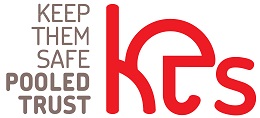Updated on May 7, 2022
Important update regarding NYS “Medicaid Lookback” Law: Read our latest article on “Medicaid Lookback” right here.
Anyone who will need Community Medicaid should start the application process now as the implementation date of the lookback law has been extended to October 1, 2022. So, beginning on October 1st, you will be subject to a minimum 15-month “look back” period (possibly up to 2.5 years) prior to your application date and possibly be required to provide records of any transfers or gifts that you made during that period of time. All of which make applying more difficult.
The New York State community Medicaid Lookback law has many folks scratching their heads. It has been extended a couple of times but is now set for January 1, 2022. It’s a complex law that includes a “lookback period” for Medicaid applicants who seek long-term home care benefits. These applicants will need to provide all financial records that fall within the lookback time frame.
In addition, it specifically imposes restrictions that affect eligibility based on asset transfers that occur during the lookback. A penalty may be imposed if assets were transferred below market value. Giving away property, for example, during the specified months before applying for benefits would signal a penalty.
If you are planning to apply for Medicaid home-care benefits, you should understand how this law affects you. To help you make sense of it, we’ve put together this simple list of FAQs (Frequently Asked Questions).
What is the New York State Medicaid Lookback Law?
The New York State community Medicaid Lookback law includes a phased-in “lookback period” and transfer penalty for Medicaid applicants. Applications filed after January 1st, 2022, for those seeking Medicaid home care benefits will be affected.
These applicants will be subject to a lookback review of asset transfers. The term “lookback” is defined by the government as “a period of time prior to the application.”
Applicants may also be imposed a potential transfer penalty if they’ve transferred their assets below a fair market value. This new law will apply to applicants seeking eligibility for home or community-based care Medicaid benefits.
Currently, states are required to do a lookback for nursing home care under Federal law. A lookback law for Medicaid applicants was previously passed by New York for those seeking nursing home care. That law requires a 5-year lookback period.
When does this new Lookback Law go into effect?
Although this law was first enacted in April 2020, the effective date was postponed several times. The initial date is now proposed to begin implementation on January 1, 2022. This means that Medicaid home care applications beginning on that date, will be subject to a 15-month lookback.
Therefore, beginning January 2022, applications will require records that date back to October 1, 2020. So, any assets that have been transferred from October 1, 2020, forward, will be included in the initial lookback period. Applicants who submit Medicaid applications before January 1, 2022, won’t be subject to this lookback and not incur transfer penalties.
How will the NY lookback period be phased in?
The lookback period initially starts with a 15-month review of past financial records. But it will be gradually phased in with additional months added according to the date the Medicaid application is submitted.
So, with each month following January 2022, the Medicaid lookback period will increase by one additional month. This time increase will continue with each subsequent month until it reaches 30 months.
Eventually the period required for asset transfer records will reach a total of 2.5 years (30 months) in April 2023. Therefore, it is important to keep accurate records of your financial transactions.
Who is impacted by this new law?
This new lookback law directly affects Medicaid applicants within the State of New York who seek long-term home care benefits. Applicants who transfer their assets lower than market value during the lookback period are not eligible for these benefits. The idea is to ensure that those who are without means benefit from Medicaid.
Both the Medicaid applicant and their spouse must submit financial records that fall within the lookback time period. This is required whether or not your spouse is also applying for Medicaid or refuses to comply.
What is the transfer penalty?
Any transfers that occur during the lookback timeframe will likely signal a transfer penalty. In these cases, a penalty will be imposed for any assets that were transferred for less than fair market value. The calculation of a transfer penalty will be determined to deny home care according to the amounts that were transferred.
Like nursing home calculations, every designated amount of uncompensated transfers within the lookback period will determine the penalty length. Therefore, the total transfer amount will be divided by the average cost of care (designated rate). The result will equal the penalty period.
This penalty period is the number of months Medicaid will deny payment for home or community based care. In other words, Medicaid eligibility will be denied during this time.
Location also determines the penalty period based on transferred value. For example, in Brooklyn, for every $13,037 that is transferred, one month of home care is denied.
Are there any exceptions to the law?
Yes, there are exceptions to the new lookback law. Transfers to an applicant’s spouse or to a blind or disable child are exempt. Remember, too, that transfers of assets that occur prior to October 1, 2020, will not be subject to a penalty.
Also, transfers to a supplemental needs trust for those disabled individuals under 65 are exempt. In addition, some exempt assets such as Holocaust restitution would not incur a penalty.
What services are affected?
Many home care/community services will be affected by the Lookback Law. Such services include personal care services, Assisted Living Program (ALP), private duty nursing, adult day care (health), and others. Medicaid Advantage Plus plan enrollments (MLTC) as well as Pace Plans will also apply. Previously, only nursing home care services applied to lookback.
What can Medicaid applicants expect after this new law goes into effect?
NY Medicaid applicants may not be eligible for home care or community services if they transferred assets within the lookback period. These applicants will be required to disclose all financial records during that time.
Any transfer of assets during the months preceding the affected Medicaid applications will signal a review. During that time, if any assets are transferred to others lower than fair value, a transfer penalty will be incurred.
With this in mind, it may be time to reevaluate your situation or that of a loved one. Are you or a loved one planning to file a Medicaid application to receive home care services? If so, it may be wise to do so prior to the law’s start date.
How are KTS members affected by the lookback?
KTS members who are eligible for and receive Medicaid home care or community-based services before January 2022 are not affected. Only Medicaid applicants who file on or after January 1, 2022, will be subject to the new law.
In addition, any and all transfers to a supplemental needs trust for disabled individuals under 65 are also exempt.
KTS is here to help!
We sincerely hope this FAQ helps you and your loved ones to better understand this law. You may even want to review the law more in detail and other resources for New York state. It may be wise to prepare or formulate a plan to coincide with your or your loved one’s needs.
For example, you can still protect your assets and be eligible for Medicaid. With this in mind, we recommend that you seek legal and/or financial advice should your situation warrant it.
If you need more information on a supplemental needs trust, and Medicaid home care and community-based eligibility, give KTS Pooled Trust a call. We are happy to assist you.







